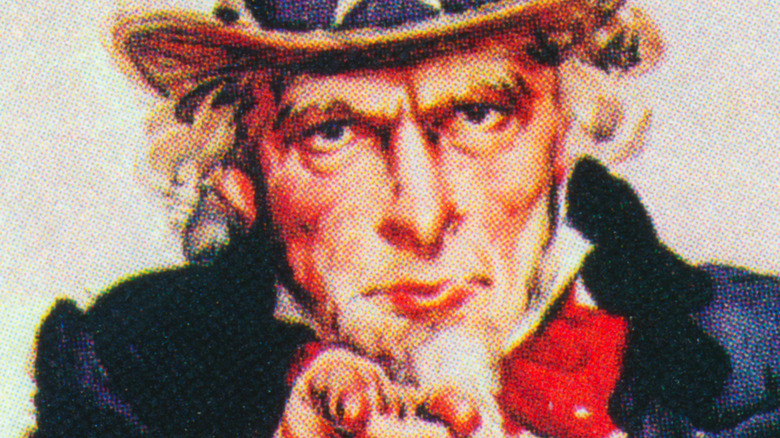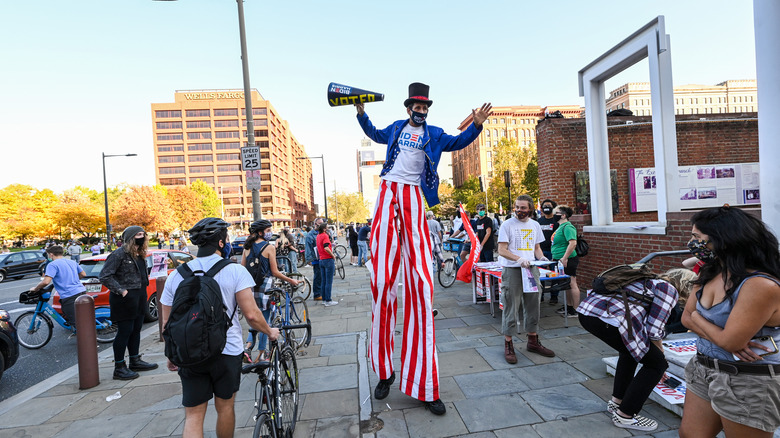How Uncle Sam Was Supposedly Born During The War Of 1812
We've all seen him pointing at us like there's always something more we could be doing for our country, as though funding its endless succession of wars somehow weren't enough. Uncle Sam is one of the symbols of Americana that we've come to accept as part and parcel of what it means to be from Merica. There's baseball, apple pie, and Uncle Sam saying he needs you to go fight some war that he promises isn't about oil. But where did the guy come from? Was there really an Uncle Sam who was all patriotism and Manifest Destiny?
According to Mental Floss, Congress tends to believe so. In 1961, the legislative branch officially accepted a pop culture explanation of Uncle Sam's origin story. This was the popular idea that the symbol was inspired by Sam Wilson, a meat packer from Troy, New York, whose nickname was said to have been Uncle Sam. He reportedly stamped the meat he sent to U.S. troops during the War of 1812 with the letters "U.S." The story has been so popular that Wilson even got a posthumous birthday party from President George H. W. Bush, who declared September 13, 1989, "Uncle Sam Day." It was the 223rd anniversary of the legendary meat packer's birth. Still, others aren't buying Wilson's story. In fact, researchers found references to an Uncle Sam that predate the War of 1812.
Sam Wilson was probably not the inspiration for Uncle Sam
If Sam Wilson's oh-so-patriotic idea to stamp "U.S." on the meat meant for U.S. soldiers really were the inspiration for Uncle Sam, then that would be where historians would first start seeing textual references to the character. However, according to The New York Times, researchers at the U.S.S. Constitution Museum in Boston, Massachusetts, found an earlier reference to a character named Uncle Sam.
The earliest mention of Uncle Sam in the historical record is now attributed to 16-year-old midshipman Isaac Mayo, who mentioned the avuncular patriot in a letter written in 1810, in which he portrayed the rough time he'd had on board the U.S.S. Wasp. He was seasick for days and put on watch during a bitter snow storm. "Oh could I have got on shore in the h[e]ight of it," he wrote, "I swear that uncle Sam, as they call him, would certainly forever have lost the services of at least one sailor."
So who knows where Mayo heard about Uncle Sam. Maybe future research will shed some light on the mystery. But really, the point of the symbol is to inspire patriotic feelings in the citizenry, so Sam Wilson's story will likely go on being an easy explanation for many people, despite what the historical record says.

